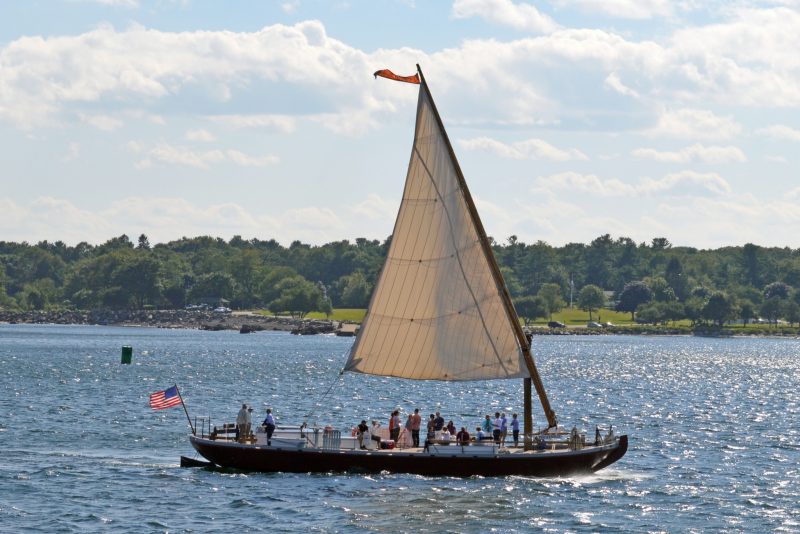It had been raining along the Seacoast of New Hampshire that morning last week when we arrived for a 2-hour ride on a gundalow along the Piscataqua River in Portsmouth. The crew was wiping down the deck as we waited to board, and the clouds above were dark and screaming rain.
I had never before heard to these unique flat-bottom, shallow-draft wooden boats that were the backbone of river commerce along the Gulf of Maine's rivers and estuaries for more than 250 years, fuelling the economic development of New England. It was time for a history lesson.
Relying on tidal currents, these vessels first appeared in the mid-1600s and moved crops, lumber, granite, coal, dried fish and textiles from inland towns to the Atlantic Ocean at Portsmouth. As the fastest-flowing navigable waterway in the country after the Columbia River in the Pacific Northwest, the Piscataqua River was the heart of gundalow transport, which began simply as flat barge with oars and evolved into decked boats with sails. They were built with flat bottoms so they could stay on the mudflats during low tides.
Today, things are much different. The advent of year-round transportation from roads and rail made the gundalow obsolete, and the last vessel was retired in 1920. We boarded a replica, which is workboat with a very different mission: educating a new generation about the boat's historical contribution to maritime history and the rich ecology of the local rivers.
This modern-day gundalow (perhaps named after Venetian gondolas, according to Capt. Matt Glenn), has a full deck, a cabin (with vintage photos of the vessels), and a lateen sail that can be easily lowered to pass under bridges. And in a nod to modern safety standards, it has an engine, life jackets and undergoes frequent Coast Guard inspections.
As we motored down to the mouth of the river, past the Portsmouth Naval Shipyard and a long-shuttered federal prison, and then into the Gulf of Maine, Capt. Glenn cut the motor and asked for volunteers to help the crew pull the lines to raise the sail. We lined up on deck and on command, pulled until the white sail unfurled into a cloudy sky with a ruffle and a slap.
Called the Piscataqua like the river, this gundalow offers school field trips, wine and cheese sunset sails, seasonal passenger cruises, and can serve as a floating wedding reception. Following the drawings of the last known gundalow, the boat was built in 2011 at nearby Strawberry Banke, an outdoor museum focusing on four centuries of Portsmouth history. Capt. Glenn said special efforts were made to build the vessel using locally-sourced products. It is owned and operated by the non-profit Gundalow Company.
For lovers of maritime history and old boats, this is truly a ride back in time.




